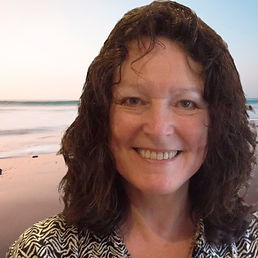

Stop One Suicide
What are the "i only said" series of therapeutic novels
Each book addresses one of the risk factors I identified through my research, and the issues addressed include anger management, low self-esteem, alcohol abuse, depression and grief, teenage pregnancy and promiscuity, sexual abuse, drug addiction, cutting and self harm, eating disorders, behaviour modification, and dealing with divorce and blended families.
Each book follows a set format and is written in the first person so that the reader identifies with the main character and works through the therapy offered in the book. The first part illustrates the risk factor being addressed and the developing crisis that leads them to go to a place that I’ve named Beach Haven where they engage in group therapy, and lessons in life skills. Knowing that teenagers often don’t respond well to adults telling them what to do, much of the therapy occurs when the group of teenagers have free time and are hanging out on the beach, discussing with each other what they have learned in group and class. There are three stable adults to guide and care for the troubled teenagers, a therapist, life skills teacher and a counselor.
THE ETHICS behind the "I only said" SERIES

The "I Only Said" series of therapeutic novels addresses many harrowing issues but does not seek to shock, sensationalize or glorify them in order to attract readers.
The series' purpose is to help the reader cope with their problems and to avoid the extreme act of suicide, therefore the text places more emphasis upon the therapeutic interventions than the intricate details of any abuse the characters may have suffered.
The text intends to show respect to all those who have endured the abuse or neglect described in each novel, and to depict the adolescent's plight responsibly. It is mindful of the fine line between accurately portraying the child's internal and familial experiences without reinforcing their negative and potentially dangerous behaviors.
For example, when addressing Anorexia Nervosa (I Only Said I Wasn't Hungry) book 8, it describes the child's internal processes without giving descriptions of new behaviors that could promote anorexia. The text is careful to avoid absolutes that the reader may apply to their own situation. For example, should the text state that the character had lost eight pounds in a week, the reader could assume that someone with anorexia was expected to lose eight pounds a week, and should they fall short of that expectation, they would try harder to perfect their destructive behaviors.
While research shows that negative family dynamics are implicated in adolescent suicide attempts, the "I Only Said" series does not support a "blame" culture. Indeed, as far as possible, elements of family therapy are included in the text in order to help the reader understand negative family dynamics, and the novels offer methods to effect change within the family.
EXPLORE THE I ONLY SAID SERIEs OF Therapeutic novels
Each book in the series is a standalone course to address the risk factors that were identified during my PhD research. The books do not need to be read in numerical order.
Within each book there are therapeutic fables that teachers and therapists can use during group therapy to explore sensitive issues.
























